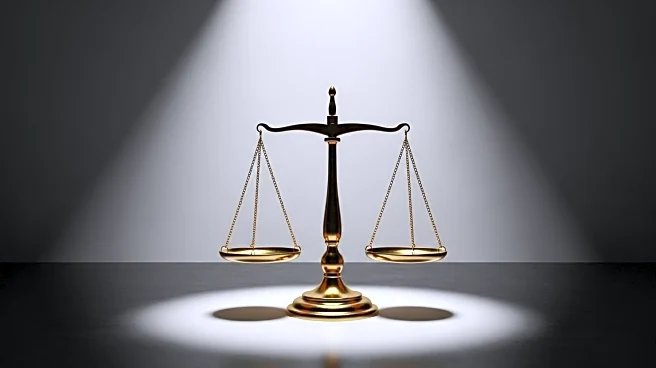What's Happening?
President Trump signed an executive order on Friday establishing a designation for state sponsors of wrongful detention. This move allows the U.S. to penalize countries that illegally detain American citizens or take them hostage. The order aims to deter countries from engaging in such practices and encourage them to release wrongfully detained Americans. The executive order provides tools such as sanctions, export controls, and travel restrictions for the nationals of designated countries. This initiative is modeled after the designation of state sponsors of terrorism, expanding the toolbox available to the U.S. government to address wrongful detention issues.
Why It's Important?
The executive order is significant as it addresses the growing concern over Americans being detained abroad under questionable circumstances. By establishing a framework to penalize countries that engage in wrongful detention, the U.S. aims to protect its citizens and discourage foreign governments from using detained Americans as political leverage. This move could impact international relations, particularly with countries known for detaining U.S. nationals, such as Iran, Russia, and North Korea. The order also highlights the U.S. government's commitment to safeguarding its citizens and ensuring their rights are respected globally.
What's Next?
The implementation of the executive order will likely involve coordination between the State Department and other federal agencies to identify and penalize countries that wrongfully detain Americans. The U.S. may impose sanctions and travel restrictions on these countries, potentially affecting diplomatic relations and international travel advisories. The order could also lead to increased scrutiny of countries on the 'Do Not Travel' list, encouraging Americans to avoid travel to regions where wrongful detention is a risk.
Beyond the Headlines
The executive order may have broader implications for U.S. foreign policy, as it could influence how the U.S. engages with countries that have historically detained Americans. It also raises ethical questions about the balance between national security and individual rights, as the U.S. seeks to protect its citizens while navigating complex international relations. The order could set a precedent for how the U.S. addresses similar issues in the future, potentially leading to more robust measures to prevent wrongful detention.








